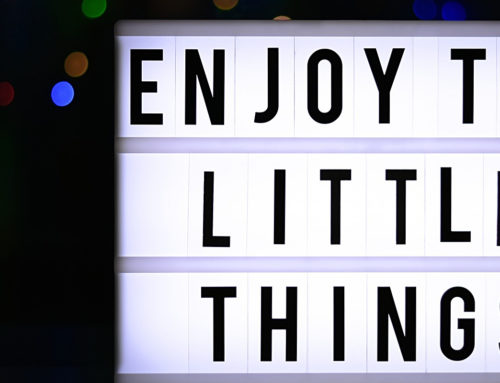In my 20 year career as a teacher and special-needs administrator, I have had many occasions to reflect on the balance between protecting young people from harm and shielding them from difficult, but instructional, realities.
Studies increasingly confirm what casual observation suggests: American parents tend to shield their children from anything that they fear might undermine self esteem.
When compared to other developed countries (such as France and Japan), studies show that American parents are much more likely to avoid, ignore, or cover up challenging or negative experiences in their children’s lives, rather than engage and discuss them. The rationale for this avoidance, in many cases, is to protect the child’s self-esteem from damage. Many therapists, educators, college admissions directors, and employers, however, see evidence that this level of protectiveness may actually impede, rather than promote, healthy development.
Just as some medical researchers blame overly fastidious hygiene for the recent rise in serious allergies (see “hygiene hypothesis”), psychologists see a possible link between overly protective parenting and underdeveloped young-adult coping skills. The resulting fragility may contribute to school or work under-performance, “failure to launch,” chronic underemployment or unemployment, a lack of perseverance in the face of difficulty, and “boomeranging” (returning repeatedly to the parents’ home to live during adulthood).
Fortunately, the antidote to an overly protective parenting culture may just be some balanced messaging. Messages that “you are special,” “you can do it,” “you are safe,” and “I will protect you,” are comforting and positive. But as our children develop, these messages must be balanced by conversation that normalizes and prepares them for the everyday bumps and setbacks of life.
Following are some intentionally overstated messages designed to balance the well-intentioned but skewed messages our children typically hear in our protective culture. These messages are reminders that life’s difficulties can provide us with rich opportunities to coach young people toward greater persistence, resiliency, and pro-social coping skills.
LIFE IS NOT FAIR:
Researchers have observed that our cognitive/emotional reaction to perceived inequity is a lot like our reaction to danger. It triggers a fight or flight reaction which, unchecked, bypasses our rational, higher-order cognitive processes. It’s natural for young people to feel a strong appetite for fairness. But continuing to respond to unfair situations with pre-pubescent reactivity does little to develop emotional intelligence or adult coping skills. The result is adults with immature and socially ineffective way of responding to perceived injustices. This kind of immaturity can cause havoc in the workplace and in important adult relationships.
When young people come up against the personal slights of everyday life, parents and educators do well to seize these opportunities as teachable moments. Normalizing instances of injustice and coaching the young person to stop, breathe, and respond (e.g. through conversational, rational self-advocacy) instead of react, can help the development of mature pro-social coping behaviors.
YOU WILL FAIL:
Failure’s gotten a bad rap. Our culture incorrectly defines success as the absence of failure. Effective adults, however, know that any significant success is usually the product of many “failures.” Failing means we’re trying, we’re pushing, we’re experimenting, we’re learning. When reframed as problems to solve or setbacks to overcome, failure events can be some of the most educational experiences available to our young people. Failure, when engaged this way, helps foster problem solving and persistence, two qualities that are critical to long-term adult success.
Again, the best way to deliver this message is to do so in a manner that normalizes the experience and encourages reflection. A compassionate and non-judging response to our children’s failures helps demonstrate that our love is not performance based. This provides the young person with the freedom to try, fail, learn, and try again, a fundamental sequence for any learning process.
Sharing stories of our own setbacks can help normalize failure; discussing how we responded to these setbacks can help foster a constructive problem solving approach to life.
YOU ARE NOT GOOD AT EVERYTHING:
Erik Erickson was perhaps the first psychologist to popularize the radical notion that a sense of inferiority is a good thing! What he meant was that accepting our own shortcomings provides two very important developmental understandings: 1) an appreciation for others and the value of their contributions, 2) an understanding of our own value and place in a group.
Contributing to a group enterprise, whether a class project or a company, requires an understanding of our both own potential contributions and those of others. This balanced “I-Thou” understanding focuses our contributions, helps us listen, informs when we should lead and when we should follow, and fosters humility; a fundamental quality for getting along with others. By shielding our children from situations in which they are may not be the best, brightest, or the most competent in the group, we rob them of opportunities to appreciate others, understand their unique contributions, and function effectively as part of a team.
LIFE IS HARD:
Sooner or later, despite our best efforts at hiding it, the secret will come out: life is hard. Despite our national allergy to anything difficult or unpleasant, we know that stress is essential for the development of any organism. Life without stress can lead to physical, emotional, social, intellectual, and spiritual atrophy. Of course, sitting passively in hardship or wallowing in how difficult our lives are doesn’t do much for personal growth either.
But normalizing stress by talking about it, making it okay, and encouraging problem solving instead of fight or flight, can help young people develop resiliency they need to persist and succeed. Self esteem that can’t survive the bumps of adult life is fragile and, at best, of limited value.



